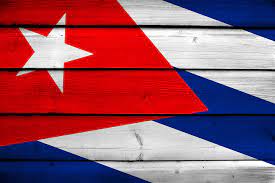
Following the landmark change in the rules to private owning and running of business that govern the Communist-run economy, understanding the opportunities and challenges of the change is being sought to be understood better by Cuban entrepreneurs who want to or are running businesses ranging from selling dried fruit to repairing bikes to software development.
The Cuban government released a regulation earlier this month which when passed would open up the opportunity for small- and medium-sized ventures to get businesses incorporated formally and access state financing. This would end the decades old policy of the government of classifying them as 'self-employed'.
Many analysts view this new development as one of the most important reforms undertaken since the nationalization of all businesses – even that of the shoe-shine boys, in 1968 by former leader Fidel Castro.
The reform was a very positive one, which was long-sought by many Cubans, according to Omar Everleny, one of Cuba's best-known economists.
The new proposed changes however also come with limits. For example, an individual cannot own more than one business and are barred from partnering with foreign collaborators or undertaking direct foreign trade.
"Given the economic situation and remaining restrictions, it will not mean a big economic improvement in the short term," cautioned Everleny.
This set of latest measure is a part of wider group of market-oriented reforms being undertaken by Cuban President Miguel Diaz-Canel over the last one year as tougher sanctions on Cuba by the US and the coronavirus pandemic pushed the already fragile economy of the country into a tailspin, resulting in shortages of food, medicines and other basic items.
In 2020, a 10.9 per cent shrinking of the Cuban economy was noted while it shrunk by another 2 per cent this year till June in comparison to the same period in 2020. The economy is still heavily dependent on tourism and imports.
There was however enthusiasm in the voice of the Fernandez brothers, owners of the company that processes and sells dried fruits in Cuba - Deshidratados Habana,
"A bad economy can present opportunity," Oscar Fernandez said.
Within the state dominated economy of Cuba, hundreds of small businesses have found niches, with the economy lacking imagination and initiative. Hundreds of outlets related to gourmet restaurants and 3D-parts manufacture to software development, home delivery, landscaping and construction contracting have found some space in the economy.
Since the 1990s, Cuba has seen an expansion of the private sector, excluding farmers, and currently has more than 600,000 self-employed license holders. The list includes small-business owners, non-agriculture cooperatives, their employees and members, tradespeople and taxi drivers.
The family business of selling dried fruits online of the Fernandez family has placed their product at three upscale private food shops in Havana.
"The horizon has opened," said Oscar, who holds a doctorate in economics. "Once incorporated we can establish relations with state and private supply chains and market our product to whomever - from state-run stores to hotels, as well as export and seek financing from local banks or abroad."
"We still have to see what happens in practice: how far the government really allows us to develop," Ricardo Fernandez said.
(Source:www.investing.com)
The Cuban government released a regulation earlier this month which when passed would open up the opportunity for small- and medium-sized ventures to get businesses incorporated formally and access state financing. This would end the decades old policy of the government of classifying them as 'self-employed'.
Many analysts view this new development as one of the most important reforms undertaken since the nationalization of all businesses – even that of the shoe-shine boys, in 1968 by former leader Fidel Castro.
The reform was a very positive one, which was long-sought by many Cubans, according to Omar Everleny, one of Cuba's best-known economists.
The new proposed changes however also come with limits. For example, an individual cannot own more than one business and are barred from partnering with foreign collaborators or undertaking direct foreign trade.
"Given the economic situation and remaining restrictions, it will not mean a big economic improvement in the short term," cautioned Everleny.
This set of latest measure is a part of wider group of market-oriented reforms being undertaken by Cuban President Miguel Diaz-Canel over the last one year as tougher sanctions on Cuba by the US and the coronavirus pandemic pushed the already fragile economy of the country into a tailspin, resulting in shortages of food, medicines and other basic items.
In 2020, a 10.9 per cent shrinking of the Cuban economy was noted while it shrunk by another 2 per cent this year till June in comparison to the same period in 2020. The economy is still heavily dependent on tourism and imports.
There was however enthusiasm in the voice of the Fernandez brothers, owners of the company that processes and sells dried fruits in Cuba - Deshidratados Habana,
"A bad economy can present opportunity," Oscar Fernandez said.
Within the state dominated economy of Cuba, hundreds of small businesses have found niches, with the economy lacking imagination and initiative. Hundreds of outlets related to gourmet restaurants and 3D-parts manufacture to software development, home delivery, landscaping and construction contracting have found some space in the economy.
Since the 1990s, Cuba has seen an expansion of the private sector, excluding farmers, and currently has more than 600,000 self-employed license holders. The list includes small-business owners, non-agriculture cooperatives, their employees and members, tradespeople and taxi drivers.
The family business of selling dried fruits online of the Fernandez family has placed their product at three upscale private food shops in Havana.
"The horizon has opened," said Oscar, who holds a doctorate in economics. "Once incorporated we can establish relations with state and private supply chains and market our product to whomever - from state-run stores to hotels, as well as export and seek financing from local banks or abroad."
"We still have to see what happens in practice: how far the government really allows us to develop," Ricardo Fernandez said.
(Source:www.investing.com)





